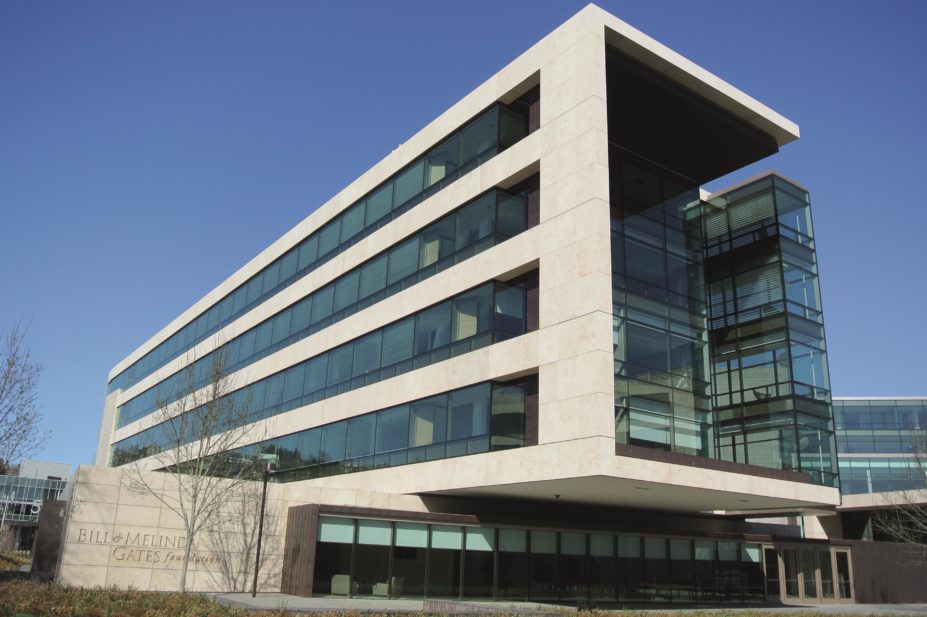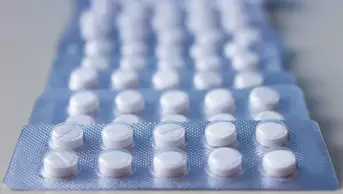
Adbar / Wikimedia Commons
Speeding up the time it takes to register drugs, vaccines and diagnostics in low and middle income countries is an important strategy for the Bill and Melinda Gates Foundation in its efforts to try to improve health in these countries.
Delivering the tenth Medicines and Healthcare products Regulatory Agency (MHRA) annual lecture at the Royal Society of Medicine on 25 March 2015, Dan Hartman, director of integrated development for the Bill and Melinda Gates Foundation, explained how the philanthropic organisation and its partners are advancing regulatory systems.
“Our vision and strategy, working with our partners, is to optimise, without sacrificing quality or safety, the regulatory landscape of global health products,” said Hartman. “We aim to reduce registration times in sub-Saharan Africa by 50% in the next three years.”
Drug licensing processes and the subsequent route taken by drugs to reach patients are generally linear in high income countries, and can take a matter of months. But in low-income countries, processes are far more complex and multifaceted meaning patients can wait another five or six years to benefit from the same drugs.
The preferred licensing route in low-income countries sees a product initially approved by a stringent regulatory authority (one participating in the International Conference on Harmonization, e.g. the US Food and Drug Administration or the European Medicines Agency); the drug then moves through the World Health Organization (WHO) prequalification process; and is finally approved by the national regulatory agency.
The WHO process was developed to ensure that UN agencies procured quality vaccines and HIV, TB, malaria and reproductive health products, but its application has widened because countries without sufficient regulatory capabilities rely on it for scientific expertise.
The Gates Foundation’s strategy for drug registration has been to minimise superfluous processes and maximise reliance on other agencies’ scientific assessments to reduce duplication, and to promote efficiency.
The capacity of national regulatory agencies is part of the problem, explained Hartman. For example, while the UK’s Medicines and Healthcare products Regulatory Agency (MHRA) has a staff of 900 to handle medicines and device regulation for a population of 63 million, the regulatory agencies in Burundi, Rwanda, Kenya, Tanzania and Uganda — countries known collectively as the East African Community — have a combined staff of 600 serving a population of 144 million.
One approach has been to streamline the registration process for regulators and manufacturers. The 55 African countries have been split into six regions and the national regulatory authorities in these regions are beginning to work together with agencies including WHO, the Gates Foundation, the Department for International Development and the World Bank. “Trying to build regulatory capacity is a real challenge and without something like regionalisation it would almost be impossible,” Hartman said.
The initiative began in East Africa in 2009, where a technical workforce has now been recruited, common working practices developed and the processes piloted on several products. In 2013, for the first time ever an East African Community joint assessment was carried out on five medicines after WHO prequalification was received. After this assessment, the five products (in the areas of reproductive health and malaria) were registered in each of the East African Community countries within 90 days, reducing the typical country registration timeframe by more than 60%.
The WHO Collaborative Registration Procedure (CRP) has been developed to enable the exchange of confidential information about products which have been through WHO prequalification to speed up local registration. “When the national regulatory agencies sign up to this they have to agree to a commitment within 90 days,” Hartman said. To date, 19 countries have enrolled in this, with 14 in sub-Saharan Africa. The median time for a local registration after the collaborative process is 59 days. The aim is to have 17 sub-Saharan African countries enrolled by the end of 2015, and 30 by the end of 2017.
The Gates Foundation is also working with partners on a pipeline of delivery innovations, geared to low income countries, which would enable drugs to be delivered over extended time periods requiring fewer contacts with the health system. These include a 15–20 year implantable fertility control device, a three-month injectable antiretroviral treatment, a “device in a pill” that consistently releases a drug over a 10–30 day period, a single dose vaccine able to replace multi-dose vaccines by releasing antigens over time, and an injectable implant that can release a drug for 6–24 months.
Hartman also pointed to the success of GAVI — the Global Alliance for Vaccines and Immunisation — to illustrate what could be achieved by working with companies and agencies based in low and middle income countries, and the importance of growing regulatory capacity.
In 2000, a donation from the Gates Foundation helped GAVI to be set up, and since its establishment, an additional 370 million children have been vaccinated. “This is an interesting twist from a regulatory perspective. Manufacturers developing GAVI-funded vaccines doubled in the past decade and a lot of these are coming from low and middle income countries,” said Hartman, adding that prices have dropped dramatically. In 2009, a dose of rotavirus vaccine was US$7.50, in 2012 it was US$2.50 and in 2015 it is US$1.00.
“Competition and working with manufacturers in low and middle income countries can have dramatic effects,” Hartman said.


